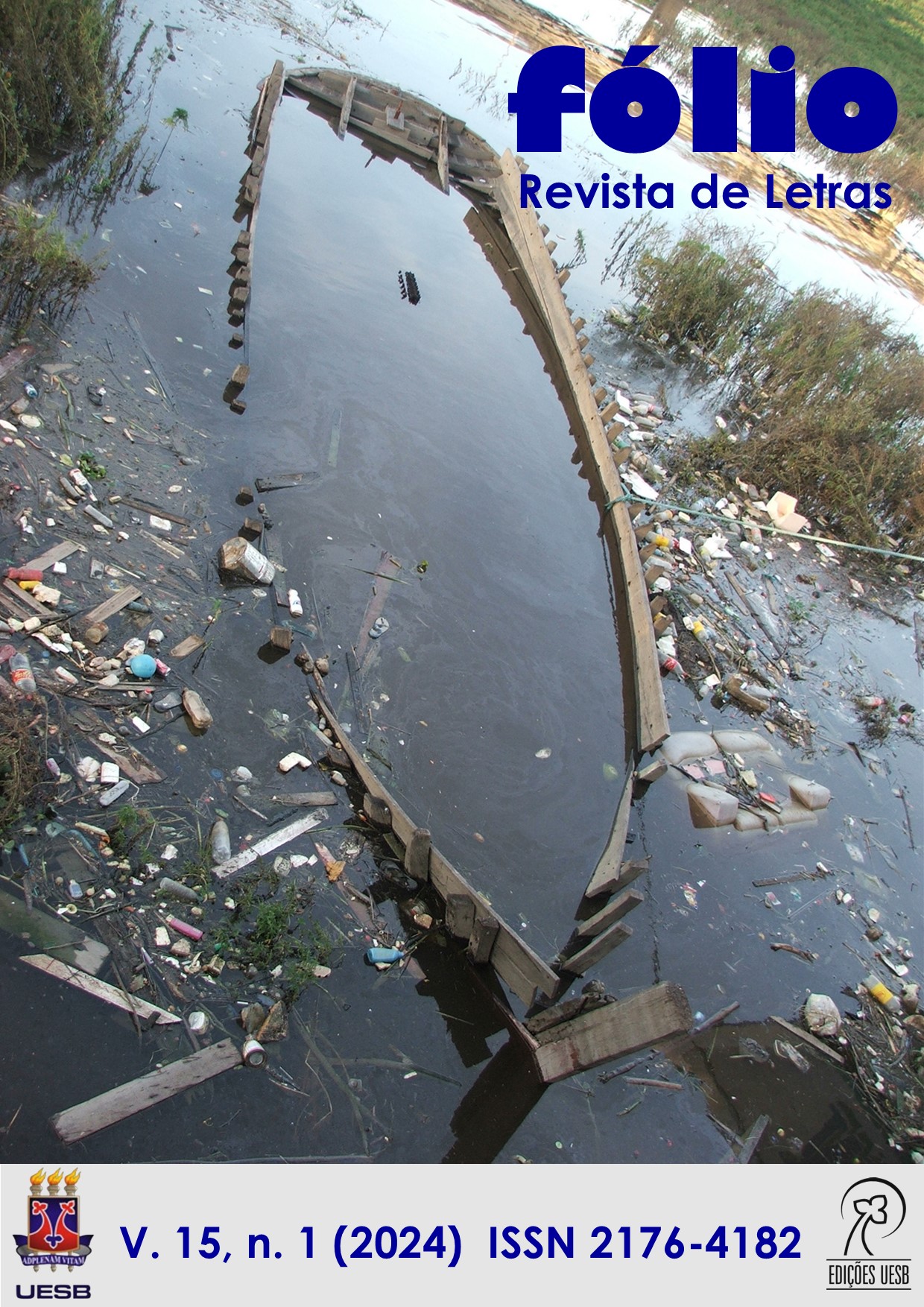Brazilian pre service english teachers' perceptions about difficulties to develop abilities
DOI:
https://doi.org/10.22481/folio.v15i1.12758Keywords:
Perceptions, Teachers, Difficulties, Abilities, English languageAbstract
Under the light of applied linguistics, this paper reflects on the difficulties to develop abilities in the English language. It introduces data of an ethnographic study, based on the ‘need analysis’ approach, carried out with a group of 26 pre-service English teachers. The main goal of this study was to identify the difficulties related with the development of the four basic abilities – speaking, listening, reading and writing- in the English language, based on the participants’s perceptions. That way, the research intended to map the difficulties related with the development of abilties in this language. For this purpose, two instruments of data collection were used: a questionnaire and an interview. The data were analysed based on the qualitaive and quantitative paradigmas and pointed out that the difficulties were related with lack of practice, supposed judgements, school culpability, approaches and teaching methods, block (affective filter), fear, insecurity, shyness, shame and self-critic. The relevance of this study is in the possibility to shed light on a problem that requires attention, to make changes possible and to reach better outcomes in the English language teaching and learning process.
Downloads
References
AL HOSNI, S. Speaking Difficulties Encountered by Young EFL Learners. In: International Journal on Studies in English Language and Literature (IJSELL). Vol. 2, Issue 6, June, p. 22-30, 2014.
ANJOS, F. A. Dimensões para o ensino da língua inglesa. Cruz das Almas: UFRB, 2022.
ANJOS, F. A.; SCHEYERL, D. C. M. What is there behind teachers’ reactions?A qualitative study on attitudes with some Brazilian teachers of English. European Scientific Journal, ESJ, 17 (22) 108. 2021. https://doi.org/10.19044/esj.2021.v17n22p108
ASSIS-PETERSON, A. A.; SILVA, E. M. N. Alunos à margem das aulas de inglês: por uma prática inclusiva? In: LIMA, D. (org.). Ensino e aprendizagem de língua inglesa: Conversas com especialistas. São Paulo: Parábola Editorial, 2009. p. 93-106.
BROWN, G.; YULE, G. Teaching the spoken language. Great Britain: Cambridge University Press, 1994.
DEWAELE, J. M. Reflections on the emotional and psychological aspects of foreign language learning and use. Anglistik: International Journal of English Studies. March, p. 23-42, 2011.
GIMENEZ, T. Ensinar a aprender ou ensinar o que aprendeu? In: LIMA, D. (org.). Ensino e aprendizagem de língua inglesa: Conversas com especialistas. São Paulo: Parábola Editorial, 2009. p. 107-112.
KIM, S. Y. Teachers’s perceptions about teaching English through English. In: English teaching, vol 57, no 1, p. 131-148, 2002.
LEFFA, V. J. Língua estrangeira. Ensino e aprendizagem. Pelotas: EDUCAT, 2016.
PALLU, P. H. R. Língua inglesa e a dificuldade de aprendizagem da pessoa adulta. Curitiba: Positivo, 2008.
RICHARDS, J. C.; RODGERS, T. S. Approaches and methods in language teaching. 3rd ed. United Kingdom: Cambridge University Press, 2014.
SANTOS, J.; BARCELOS, A. M. F. “Não sei de onde vem essa timidez, talvez um medo de parecer ridículo”: um estudo sobre a timidez e a produção oral de alunos de inglês. In: Horizontes de Linguística Aplicada, ano 17, n. 2, p.15-35, 2018.
SCHMITZ, J. R. Ensino/aprendizagem das quatro habilidades linguísticas na escola pública: Uma meta alcançável? In: LIMA, D. (org.). Ensino e aprendizagem de língua inglesa: Conversas com especialistas. São Paulo: Parábola Editorial, 2009. p. 13-20.
SINTADEWI, N. M. D.; ARTINI, N. P. J.; FEBRYAN, I. Analysis of English Learning Difficulty of Students inElementary School. In: International Journal of Elementary Education. Volume 4, Number 3, Tahun, pp.431-438, 2020.
SONGHORI, M. H. Introduction to Needs Analysis. In: English for Specific Purposes world, Issue 4, p. 1-25, 2008.
SURYANTO, S.; SARI, Z. E. Difficulties and Strategies in Learning English: An Analysis of Students From English and Non-English Education Department in IndonesiaEnglish Education Department in Indonesia. In: Advances in Social Science, Education and Humanities Research, volume 518, p. 313-331, 2020.
UTAMI, D. N. The EFL teachers’ beliefs and their teaching practices. OKARA Journal of Languages and Literature, II (X), 2016, 135-144. Retrieved from: http://ejournal.stainpamekasan. ac.id/index.php/okara/article/view/974/773.
Downloads
Published
How to Cite
Issue
Section
License
Copyright (c) 2024 Fólio - Revista de Letras

This work is licensed under a Creative Commons Attribution 4.0 International License.







